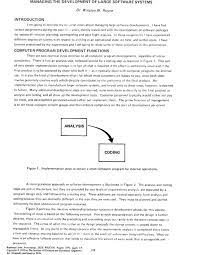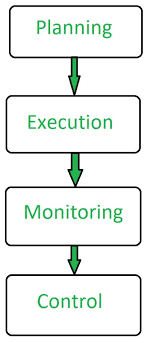Maximizing Business Potential with IT Management Consulting Services
The Importance of IT Management Consulting Services
IT management consulting services play a crucial role in helping businesses effectively utilize technology to achieve their goals and stay competitive in today’s digital world. These services provide expert guidance and support in managing, optimizing, and securing IT infrastructure to drive business growth and innovation.
Benefits of IT Management Consulting Services
Strategic Planning: IT management consultants help businesses develop strategic IT plans aligned with their overall business objectives. They assess current systems, identify areas for improvement, and create roadmaps for implementing new technologies that enhance efficiency and productivity.
Cost Efficiency: By outsourcing IT management consulting services, businesses can access specialized expertise without the need to hire full-time staff. This cost-effective approach allows companies to benefit from industry best practices and innovative solutions tailored to their specific needs.
Risk Mitigation: IT management consultants help businesses mitigate risks associated with cybersecurity threats, data breaches, system failures, and compliance issues. They implement robust security measures, disaster recovery plans, and regulatory compliance frameworks to safeguard sensitive information and ensure business continuity.
Services Offered by IT Management Consultants
IT Strategy Development: Consultants work closely with businesses to define strategic objectives, assess current technology capabilities, and develop comprehensive IT strategies that align with organizational goals.
Infrastructure Optimization: Consultants analyze existing IT infrastructure to identify inefficiencies and recommend solutions for streamlining operations, improving performance, and reducing costs.
Cybersecurity Assessment: Consultants conduct thorough security assessments to identify vulnerabilities, implement security controls, and establish incident response protocols to protect against cyber threats.
Conclusion
IT management consulting services are essential for businesses looking to leverage technology effectively, enhance operational efficiency, and drive sustainable growth. By partnering with experienced consultants, organizations can navigate the complexities of the digital landscape with confidence and achieve long-term success in today’s competitive market.
Top FAQs About IT Management Consulting Services: Roles, Firms, and Costs
- What does an IT consultant do?
- What are the big 4 IT consulting firms?
- What are the IT consulting services?
- Who are the top 10 IT consultants?
- What does an IT consultancy do?
- What is a IT consulting service?
- What do IT management consultants do?
- How much do IT consultants charge?
What does an IT consultant do?
One frequently asked question about IT management consulting services is, “What does an IT consultant do?” An IT consultant plays a crucial role in helping businesses navigate the complexities of technology by providing expert advice, guidance, and support. These professionals assess a company’s current IT infrastructure, identify areas for improvement, and develop strategic plans to optimize technology resources. IT consultants also offer solutions for enhancing cybersecurity measures, implementing new technologies, and ensuring compliance with industry regulations. By leveraging their expertise and industry knowledge, IT consultants empower businesses to make informed decisions that drive efficiency, innovation, and growth in today’s digital landscape.
What are the big 4 IT consulting firms?
The “Big 4” IT consulting firms refer to the largest and most renowned companies in the IT consulting industry: Deloitte, PricewaterhouseCoopers (PwC), Ernst & Young (EY), and KPMG. These firms have established themselves as global leaders in providing a wide range of IT consulting services, including strategic planning, digital transformation, cybersecurity, and technology implementation. With their extensive expertise, resources, and industry knowledge, the Big 4 IT consulting firms are trusted partners for businesses seeking innovative solutions to navigate the complexities of today’s digital landscape and achieve sustainable growth.
What are the IT consulting services?
IT consulting services encompass a wide range of offerings aimed at assisting businesses in effectively managing their information technology infrastructure. These services typically include strategic IT planning, infrastructure optimization, cybersecurity assessment, software development, network management, cloud solutions, and more. IT consultants work closely with organizations to evaluate their current technology needs and challenges, develop tailored solutions to enhance efficiency and productivity, mitigate risks, and support overall business objectives. By leveraging the expertise of IT consulting services, businesses can stay ahead of technological advancements, improve operational performance, and achieve sustainable growth in today’s competitive market.
Who are the top 10 IT consultants?
When seeking top IT consultants, it is essential to consider industry leaders known for their expertise, experience, and innovative solutions. While the specific ranking of the top 10 IT consultants may vary based on individual needs and preferences, some renowned names that often make the list include firms like Accenture, Deloitte, IBM Global Business Services, PwC (PricewaterhouseCoopers), McKinsey & Company, Ernst & Young (EY), KPMG, Capgemini, Cognizant, and Booz Allen Hamilton. These consulting firms are recognized for their comprehensive IT services, strategic guidance, and successful track records in helping businesses navigate complex technological challenges and achieve sustainable growth.
What does an IT consultancy do?
An IT consultancy provides expert guidance and support to businesses seeking to optimize their IT infrastructure and leverage technology effectively. IT consultants assess the current state of a company’s technology systems, identify areas for improvement, and develop strategic plans to align IT initiatives with business goals. They offer specialized expertise in areas such as network management, cybersecurity, software development, and cloud solutions. By partnering with an IT consultancy, organizations can benefit from tailored recommendations, innovative solutions, and ongoing support to enhance operational efficiency, mitigate risks, and drive business growth through technology.
What is a IT consulting service?
An IT consulting service refers to a professional service provided by experts in the field of information technology to assist businesses in optimizing their IT systems and processes. IT consultants offer strategic guidance, technical expertise, and practical solutions to help organizations leverage technology effectively to achieve their business objectives. These services may include IT strategy development, infrastructure optimization, cybersecurity assessment, software implementation, and training. By partnering with IT consulting services, businesses can benefit from specialized knowledge and experience to address complex IT challenges and drive innovation within their operations.
What do IT management consultants do?
IT management consultants play a vital role in assisting businesses with optimizing their IT infrastructure and leveraging technology to achieve strategic objectives. These professionals offer expert guidance on a wide range of IT-related issues, including strategic planning, infrastructure optimization, cybersecurity, and risk management. IT management consultants assess current systems, identify areas for improvement, and develop tailored solutions to enhance operational efficiency and drive business growth. By partnering with IT management consultants, organizations can benefit from specialized expertise, innovative solutions, and proactive support to navigate the complexities of the digital landscape effectively.
How much do IT consultants charge?
When it comes to IT management consulting services, the cost of hiring IT consultants can vary based on several factors such as the scope of the project, the level of expertise required, and the duration of the engagement. IT consultants typically charge either by the hour, project, or on a retainer basis. Hourly rates can range from $75 to $300 or more depending on the consultant’s experience and specialization. Project-based fees may vary significantly depending on the complexity and scale of the project. It’s important for businesses to discuss pricing structures and expectations upfront with IT consultants to ensure transparency and alignment on costs before engaging their services.





